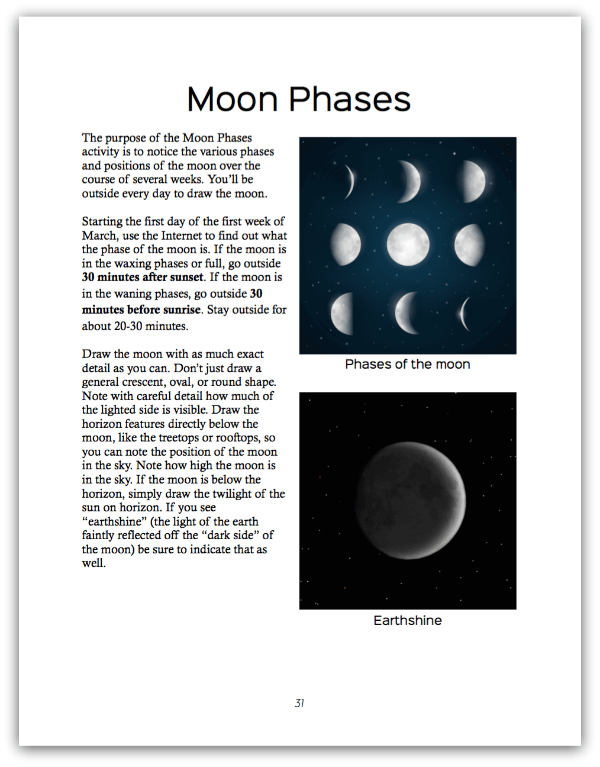Thanks for your interest in the subject of astronomy! It is one of most exciting sciences for kids (and parents) to study.
Free Moon Phases Activity
Click here to get access to my “Phases of the Moon” lecture. This is one of the lectures students see in the Experience Astronomy online course.
There you’ll also be able to download the moon phases activity pages from the Field Guide for the course.
Helpful Websites and Apps
Below are some websites and apps I mentioned during my presentation:
Star Walk (app)
Stamp (app)
Pocket Universe (app)
Sky View (app)
Planets (app)
Helpful Books and Tools:
During the presentation, four approaches to astronomy were explained. Below are helpful books that can help you with these approaches.
For the Observational Approach:
Planets, Moons and Stars: Take-Along Guide
National Geographic Backyard Guide to the Night Sky
For the Literary Approach:
Zoo in the Sky: A Book of Animal Constellations
Once Upon a Starry Night: A Book of Constellations
Treasury of Greek Mythology: Classic Stories of Gods, Goddesses, Heroes & Monsters
Star Lore: Myths, Legends, and Facts
They Dance in the Sky: Native American Star Myths
The Constellations: Myths of the Stars
Ancient Astronomy: An Encyclopedia of Cosmologies and Myth
The Power of Stars: How Celestial Observations Have Shaped Civilization
For the Historical Approach:
Galileo for Kids: His Life and Ideas, 25 Activities
Isaac Newton and Physics for Kids: His Life and Ideas with 21 Activities
Nicolaus Copernicus: The Earth Is a Planet
Celestial Geometry: Understanding the Astronomical Meanings of Ancient Sites
Echoes of the Ancient Skies: The Astronomy of Lost Civilizations
For the Conceptual Approach:
There’s No Place Like Space: All About Our Solar System
National Geographic Readers: Planets
The Magic School Bus Lost In The Solar System
What’s Out There?: A Book about Space
13 Planets: The Latest View of the Solar System
